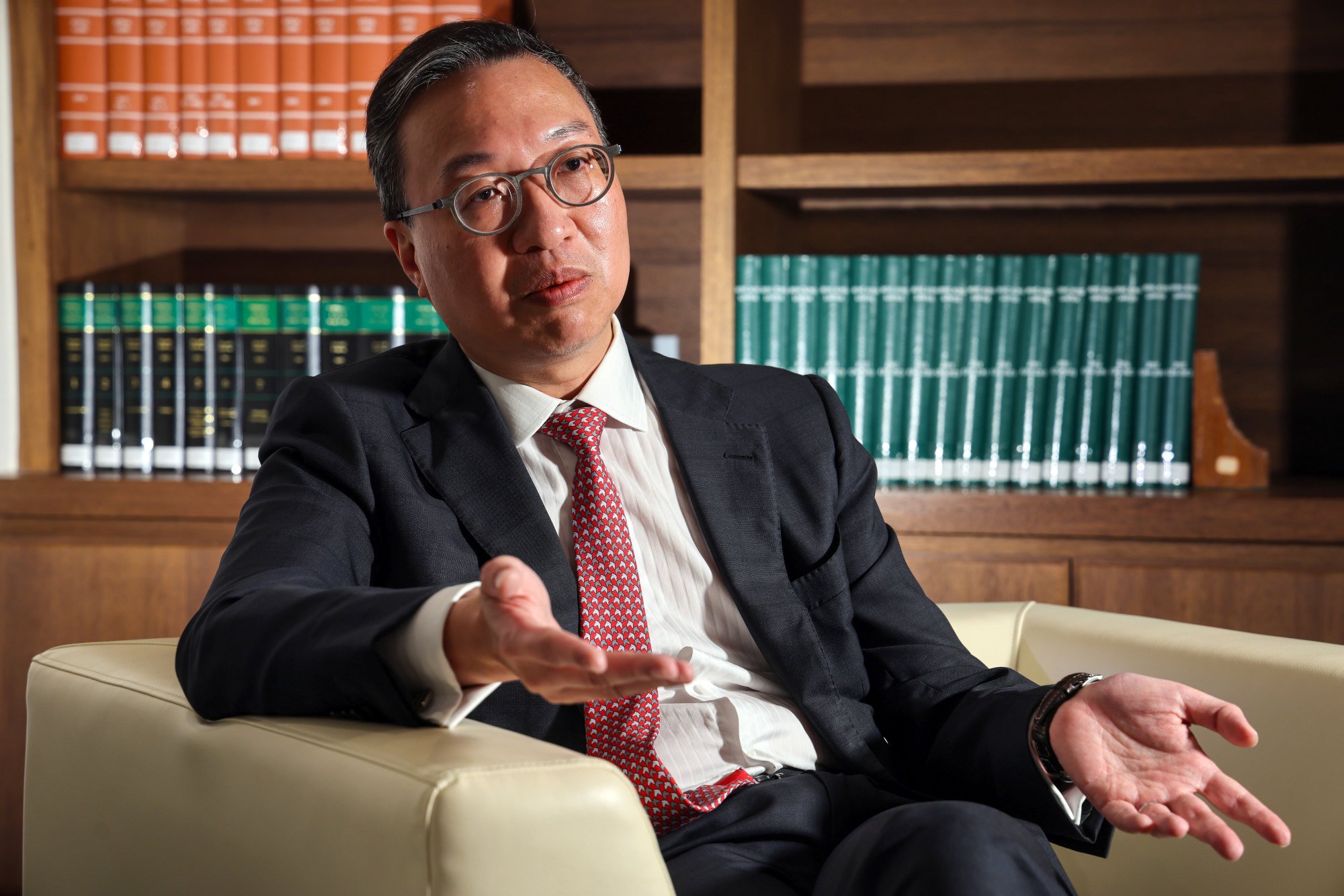
Hong Kong’s domestic national security law subject to ‘rigorous’ legislative process with measures to protect innocent, justice chief says
- Paul Lam says he continues to engage in discussions and provide explanations on the Safeguarding National Security Ordinance enacted last month
- Secretary for justice stresses the law is in line with international human rights standards
Secretary for Justice Paul Lam Ting-kwok also said the public needed to consider all the elements and connections that constituted an offence, rather than basing criticism on isolated parts or wording when determining whether a law was sufficiently clear.

In a Facebook post on Sunday, Lam said he continued to engage in discussions and provide explanations on the Safeguarding National Security Ordinance enacted last month, with two recent sharing sessions with the Better Hong Kong Foundation think tank and trade group the Chinese Manufacturers’ Association of Hong Kong.
Calling the legislative process “rigorous”, Lam said the government responded seriously to lawmakers’ inquiries while appropriately proposing amendments to the legislation to address opinions.
Lam stressed the law was in line with international human rights standards.
Hong Kong’s domestic security law 1 month on: all quiet on the arrest front
“For example, in response to the media industry’s expectations, we included ‘public interest’ as a defence for the ‘unlawful disclosure of state secrets’,” he said.
“We [also] implemented measures to protect an ‘innocent third party’ from being affected by the actions of suspects or fugitives.”
Under the ordinance, the disclosure of state secrets is allowed when the purpose is to reveal the government’s performance of its functions is “seriously affected” or “a serious threat” to public order, safety or health.
But the defence can only be applied to people who unlawfully acquire, possess or disclose state secrets without the intention of endangering national security.
Beijing hits out at US after report on human rights situation in Hong Kong
The legislation also protects individuals involved in pre-existing property contracts, joint ventures or investments with a person later identified as an absconder.
“Hong Kong has an independent judicial system, and all cases related to the [ordinance] will be tried in Hong Kong, with final adjudication also taking place in the city,” he added.
The ordinance took effect on March 23 after an expedited legislation process – the bill cleared the legislature and was signed into law in just over three weeks after authorities concluded a one-month public consultation exercise.

